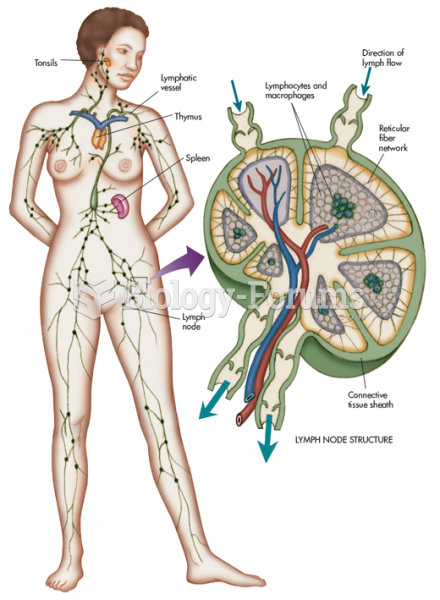|
|
|
Did you know?
Autoimmune diseases occur when the immune system destroys its own healthy tissues. When this occurs, white blood cells cannot distinguish between pathogens and normal cells.
Did you know?
Normal urine is sterile. It contains fluids, salts, and waste products. It is free of bacteria, viruses, and fungi.
Did you know?
If you could remove all of your skin, it would weigh up to 5 pounds.
Did you know?
Complications of influenza include: bacterial pneumonia, ear and sinus infections, dehydration, and worsening of chronic conditions such as asthma, congestive heart failure, or diabetes.
Did you know?
Amoebae are the simplest type of protozoans, and are characterized by a feeding and dividing trophozoite stage that moves by temporary extensions called pseudopodia or false feet.
 To help his students understand the term generalized other, Mead used baseball as an illustration. ...
To help his students understand the term generalized other, Mead used baseball as an illustration. ...
 The shut-off switch on a GM parallel hybrid truck is green because this system uses 42 volts instead ...
The shut-off switch on a GM parallel hybrid truck is green because this system uses 42 volts instead ...
 A typical direct-injection system uses two pumps—one low-pressure electric pump in the fuel tank ...
A typical direct-injection system uses two pumps—one low-pressure electric pump in the fuel tank ...




